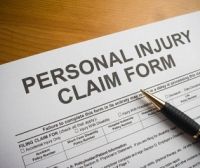Making sense of 'common sense' health and safety reforms...
The outcome of Lord Young’s health and safety review may not be the ‘bonfire of the regulations’ that many anticipated, but it could still herald major changes to the way health and safety is delivered, legislated and enforced in the UK.
The report Common Sense, Common Safety follows a Whitehall-wide review of the operation of health and safety laws and the growth of compensation culture. It puts forward a series of policies and recommendations for improving the perception of health and safety.
Key recommendations include simplifying risk assessments for low hazard workplaces, the accreditation of health and safety consultants, consolidating existing legislation into a single set of regulations, and a restriction on ‘no win, no fee’ advertising for compensation claims.
The PM welcomed the report stating, “Good health and safety is vitally important. But all too often, straightforward legislation designed to protect people from major hazards has been extended inappropriately to cover every walk of life, no matter how low risk.”
Indeed, the PM and the Cabinet have accepted all of Lord Young’s recommendations, and work will continue to put them into practice. The intention is to:
- introduce a simplified procedure for personal injury claims similar to that for road traffic accidents under £10,000 on a fixed costs basis (and explore the possibility of extending it to cover low-value medical negligence claims);
- potentially extend the upper limit for road traffic accident personal injury claims to £25,000;
- restrict the operation of referral agencies and personal injury lawyers and control the volume and type of advertising;
- clarify, through legislation if necessary, that people will not be held liable for any consequences due to well-intentioned voluntary acts on their part;
- simplify the risk assessment procedure for low hazard workplaces such as offices, classrooms and shops;
- exempt employers from risk assessments for employees working from home in a low hazard environment;
- exempt self-employed people in low hazard businesses from risk assessments;
- stop insurance companies requiring businesses operating in low hazard environments to employ health and safety consultants to carry out full health and safety risk assessments;
- ensure that only qualified consultants are used to carry out risk assessments;
- simplify the process that schools and similar organisations undertake before taking children on trips;
- introduce a single consent form that covers all activities involving school children;
- introduce a simplified risk assessment for classrooms;
- shift from a system of risk assessment to a system of risk-benefit assessment (and review the Health and Safety at Work etc. Act 1974 to separate out play and leisure from workplace contexts);
- require that decisions to ban events on health and safety grounds provide reasons in writing;
- enable citizens to have a redress route where they want to challenge local authority decisions;
- allow citizens to refer unfair decisions to the Ombudsman (a fast-track process should ensure that decisions can be overturned within two weeks);
- require the HSE to re-examine the operation of the Reporting of Injuries, Diseases and Dangerous Occurrences Regulations SI 1995/3163 to determine whether it provides an accurate national picture of workplace accidents.

